Meet the Future Shapers of 2018
We’ve scoured the country to find this year's Future Shapers, who are innovating the way we live and work. Here’s what keeps them motivated and inspired.
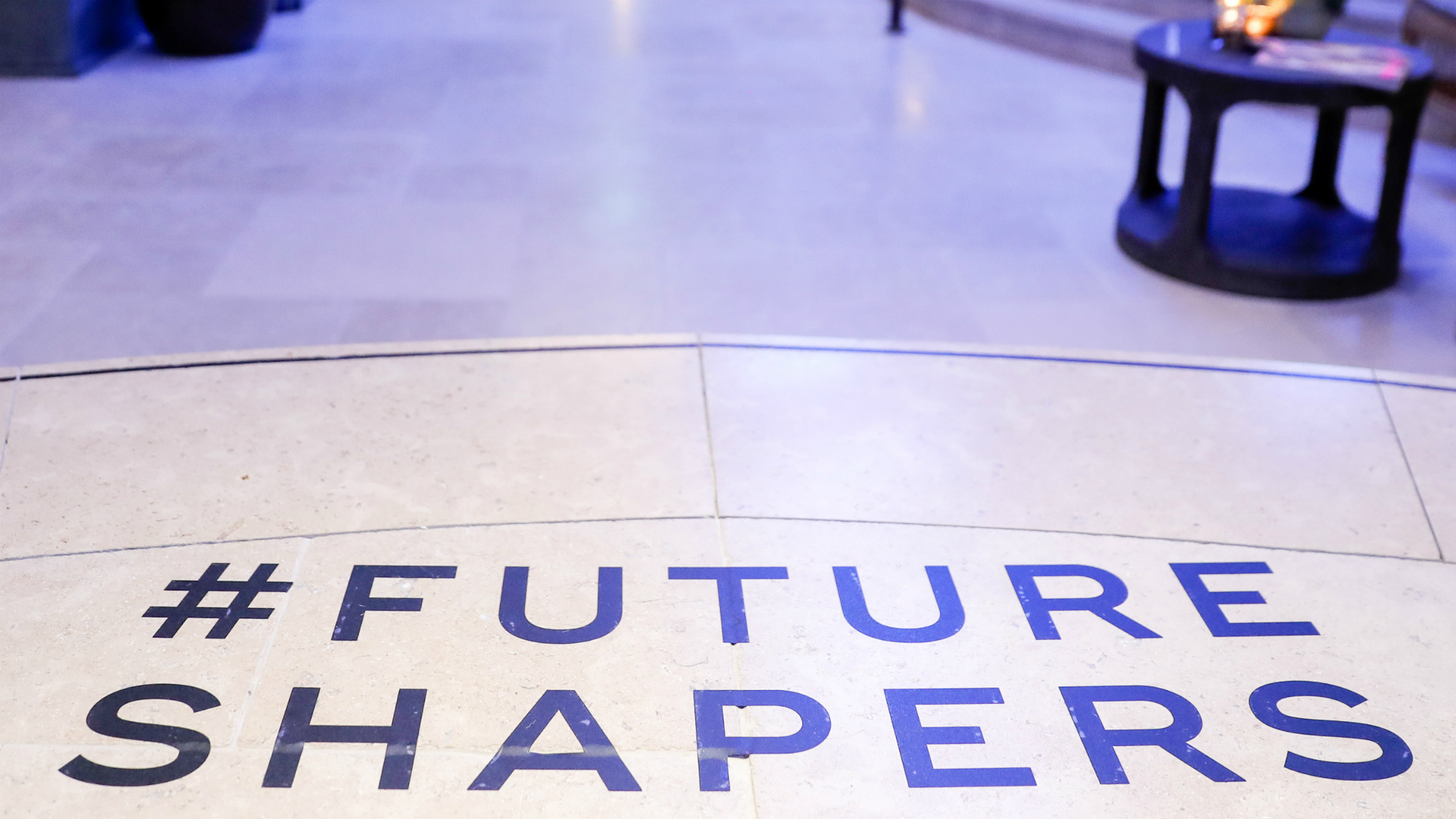

We’ve scoured the country to find this year's Future Shapers, who are innovating the way we live and work. Here’s what keeps them motivated and inspired.
The environmental activist: Daisy Kendrick
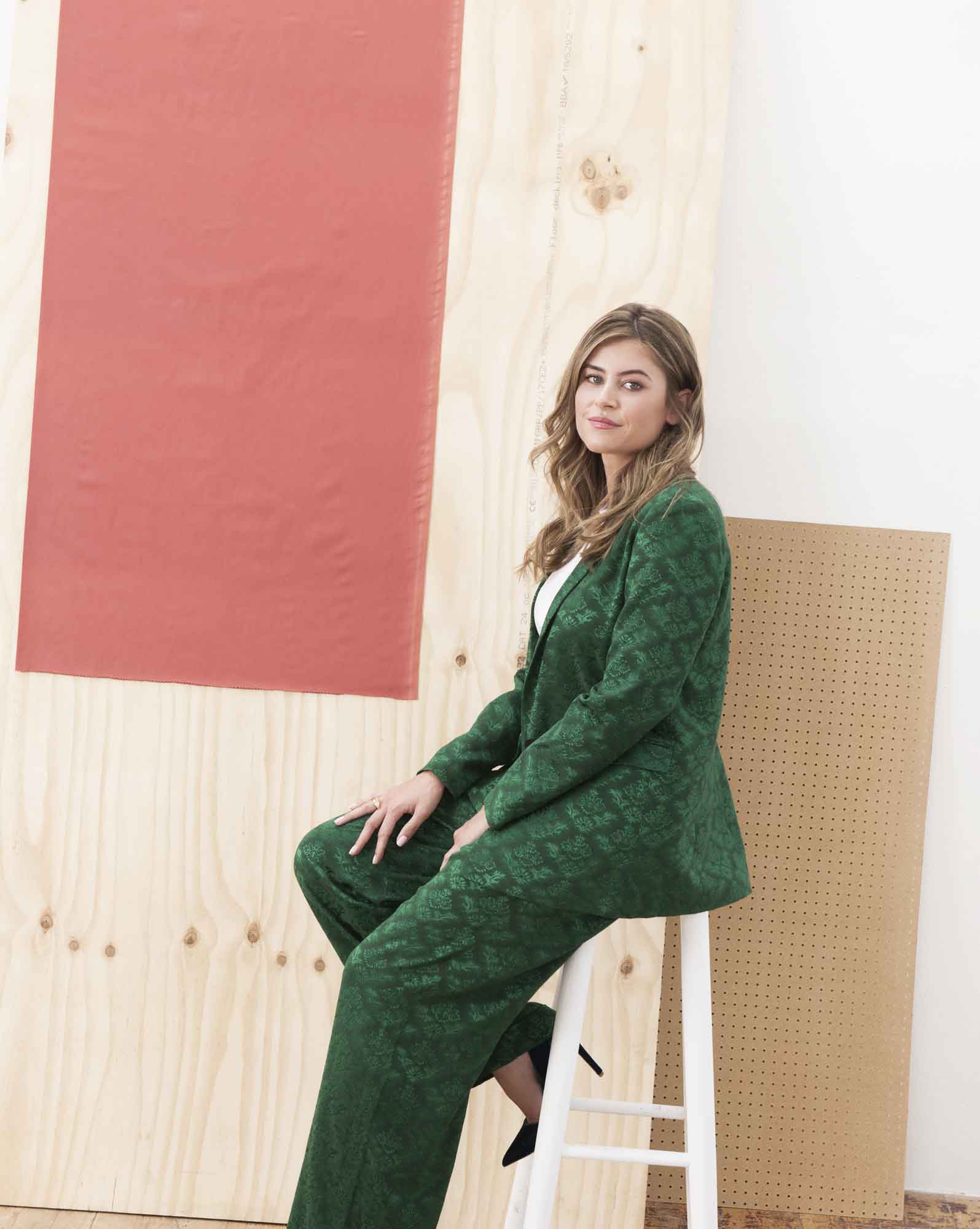
Daisy Kendrick, 24, is CEO and founder of Ocean Generation, a non-profit organisation that engages millennial and Gen Z audiences in the battle against climate change through music and popular culture. It also works on the ground, teaching digital skills to young people particularly vulnerable to climate change. Photo by David Newby
Work experience sparked my interest in the environment. At university, I interned at the UN with Grenada. If I was working for the UK or the US, I probably would have been serving tea, but they gave me a lot of responsibility. I’d go to meetings and listen to real stories about overfishing and rising sea levels, and I began asking myself, ‘How did I not know about this?’
It really put things in perspective – at home, we get annoyed because a train is late. At the UN, I listened to a man pleading that we stop polluting the earth because his home nation of Kiribati is predicted to no longer exist by 2050. People need to know that climate-change refugees are totally unprotected.
An optimistic pitch to the UN paid off and changed my life. The UN Sustainable Development agenda has 17 goals. Most goals have a programme in action, but with Goal 14 – the ocean – no one has taken charge. I applied to the United Nations Office for Project Services for funding, saying that we would give them exposure and engagement in return for them supporting us, and they agreed. Our project, Ocean Generation, was the first non-profit they ever worked with.
We try to get messages across in innovative ways. We have delivered 7.2 million educational messages through the mobile game Angry Birds, which gave us space to make a playable advert.
The nursing trailblazer: Christie Watson
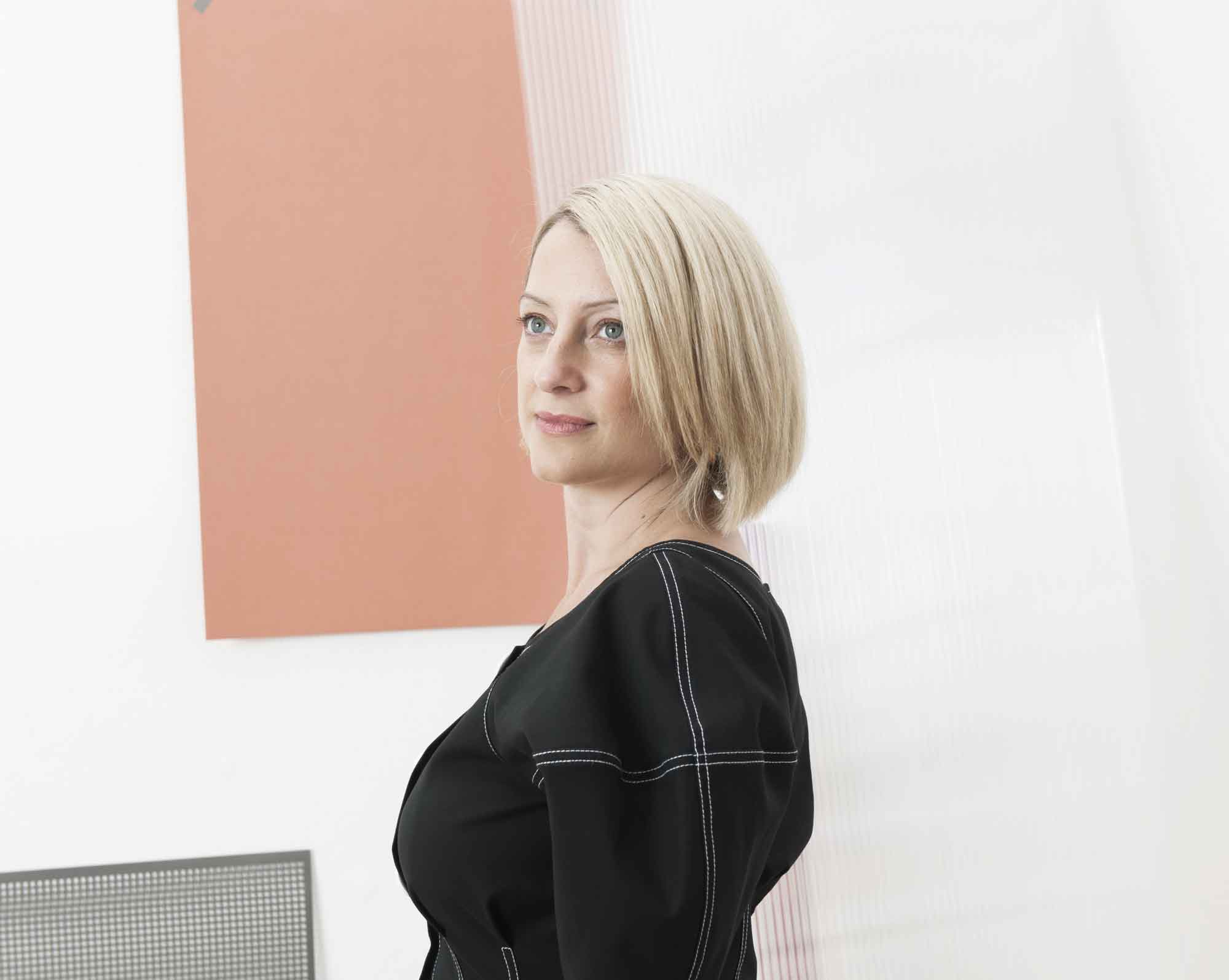
Christie Watson, 42, worked as a registered nurse for 20 years. In the year the NHS turns 70, her book The Language Of Kindness, about her own nursing career, is a timely reminder of the increasing pressure staff are under. It caused an unprecedented bidding war, became a Sunday Times bestseller and is now being adapted for TV. It’s also been translated into 20 languages. Photo by David Newby
Marie Claire Newsletter
Celebrity news, beauty, fashion advice, and fascinating features, delivered straight to your inbox!
I wasn’t born a nurse the way some people are. I went through a number of career ideas, but at the age of 16, when I was volunteering with adults with disabilities and around nurses for the first time, I knew what I wanted to do because I just loved it.
Nursing is in the tiny details. Six years ago, my dad was dying from lung cancer and I spent a lot of time with his nurse, Cheryl. I watched her like a hawk and saw how the smallest things could make the biggest difference to my dad and our family, like making sure the curtains were closed just enough that it wasn’t too bright for Dad’s eyes, but that he could still see.
Nursing is in trouble like never before. We’re losing NHS nurses faster than they’re joining. Without the nursing bursary, which was scrapped last year, I don’t see those numbers increasing in the way we so desperately need. There’s always been a genre of medical narrative non-fiction written by doctors, but there’s never been a book like this from a nurse’s perspective. The fact we haven’t heard nurses’ voices previously says everything about gender.
We need to switch off. Access to technology 24 hours a day means we work all the time: I knew I had a problem when I went swimming, wrapped my phone in a towel at the end of the pool and checked it after each length. Writing is my version of mindfulness, and I try and write every day.
I was completely overwhelmed by the reception to The Language Of Kindness. In my head, this was going to be a small book about nursing, but there was a 14-way auction in the UK. I’m making a television series too, and met Hollywood TV executives who wanted to get the rights. People were trying everything: one offered me a puppy!
‘Life is not a dress rehearsal.’ That’s something my brother always says, and I laugh at him, but it’s true. Nursing teaches you that life is not infinite and no one knows what’s going to happen tomorrow, so it’s really important to make the most out of today.
The acting high-flyer: Jodie Comer
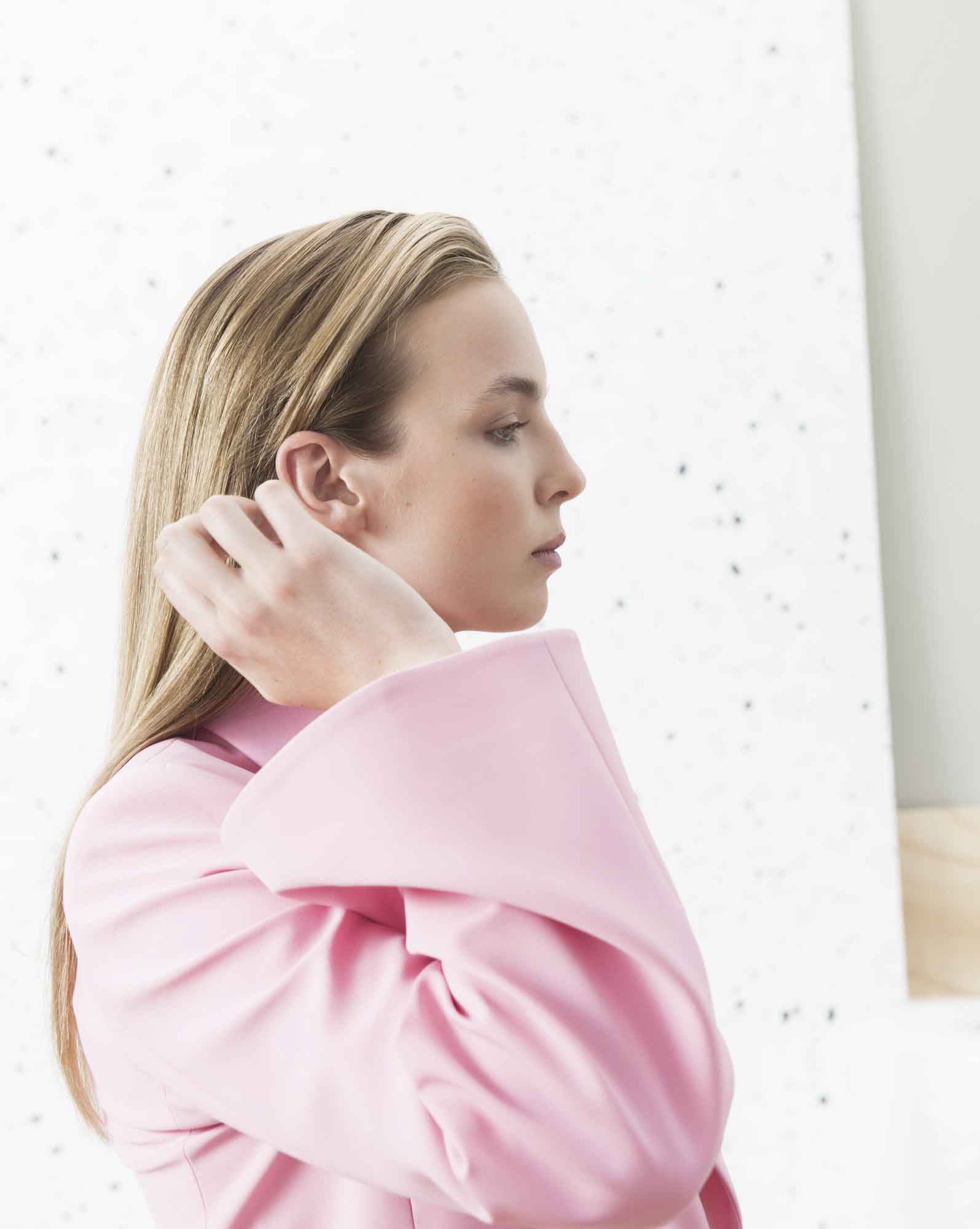
Jodie Comer, 25, is one of acting’s hottest rising stars. The Liverpool actor’s latest role is as a sociopathic assassin in BBC drama Killing Eve by Phoebe Waller-Bridge, alongside Grey’s Anatomy’s Sandra Oh. Her previous roles include Chloe Gemell in My Mad Fat Diary, Kate Parks in Doctor Foster and Ivy Moxam in Thirteen, for which she received a Best Leading Actress BAFTA nomination. Photo by David Newby
My big break came at school. I won the Liverpool Drama Festival performing a monologue by a local writer about Hillsborough, so it was very emotive. I had been due to perform in a school talent show with my friends, but had gone on holiday, so hadn’t been able to practise with them and couldn’t do it. Totally heartbroken, I decided to do this monologue instead, and my drama teacher spotted me from that.
Good introductions can change your career. Stephen Graham introduced me to my current agent after a casual chat while I was filming Good Cop with him in Liverpool. I’m very grateful to him – it has allowed me to have so many amazing jobs and experiences.
Family is so important to me. When I’m not working, I use that time to my advantage, spending time with them or going on holiday to look after my soul. With acting you’ve got to go out, see the world and experience things so you can put that back into your work.
The groundbreaking authors: Yomi Adegoke & Elizabeth Uviebinene
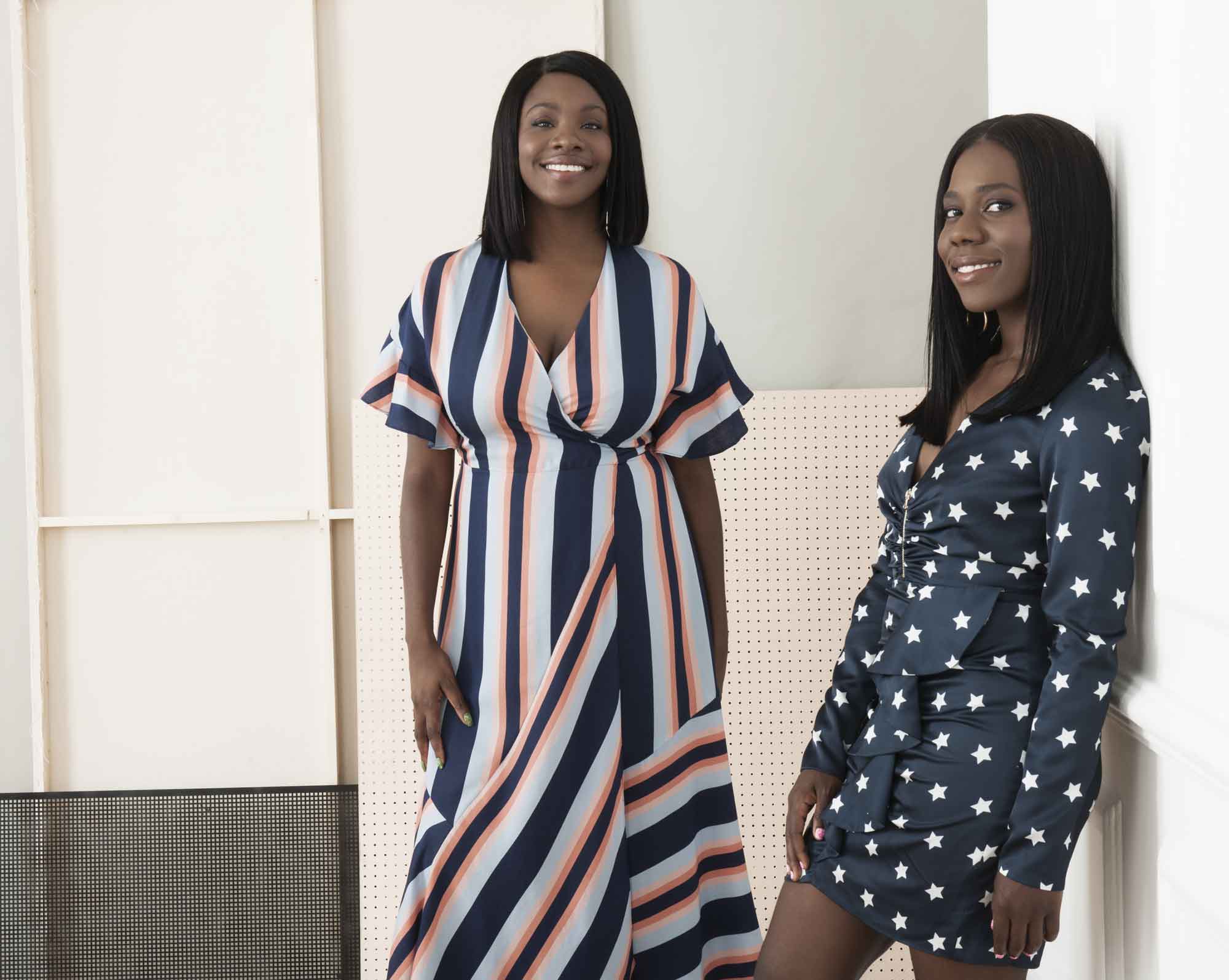
Yomi Adegoke, 27 (above left), and Elizabeth Uviebinené, 26, have written one of this year's most celebrated books, Slay In Your Lane: The Black Girl Bible. Having met at university, award-winning marketing manager Elizabeth, and Yomi, an award-winning journalist, wrote the first guide to life for young black British women. By sharing their own experiences and those of others, the book has opened up a new conversation on race and British women. Photo by David Newby
Yomi: When Elizabeth first spoke to me about writing the book, I couldn’t believe something like this didn’t exist. It felt so obvious, but there was nothing in a Black-British, or even American, context. That’s when we knew we had to do it.
Elizabeth: The voices of black British women weren’t widely represented in the books I was reading. Personal development and career books like Sheryl Sandberg’s Lean In often failed to address the uniquely challenging experiences black women face. For example, lots of these books talk about how you have to be confident and forthright, but when you are a black woman, these things can be interpreted in different ways because of pre-existing stereotypes.
Elizabeth: Work out your ‘why’. My life changed when I thought about my purpose and what I wanted out of life. My ‘why’ comes down to being able to be myself, tell authentic stories and embrace the voices of women who don’t necessarily have the platforms.
Yomi: I believe in authenticity over everything. It sounds cheesy, but I feel really blessed and lucky that I haven’t had to compromise who I am to achieve what I have. Be who you are and put that in your work.
E & Y: It’s so much fun working with your best friend. If one of us is down, the other can give a pep talk, and when something amazing happens, you experience it with somebody you’re really close to. You get confidence from the fact that, in every meeting you go to, the other person has your back. That’s a great feeling.
The anti-trafficking warrior: Cristina Gavrilovic
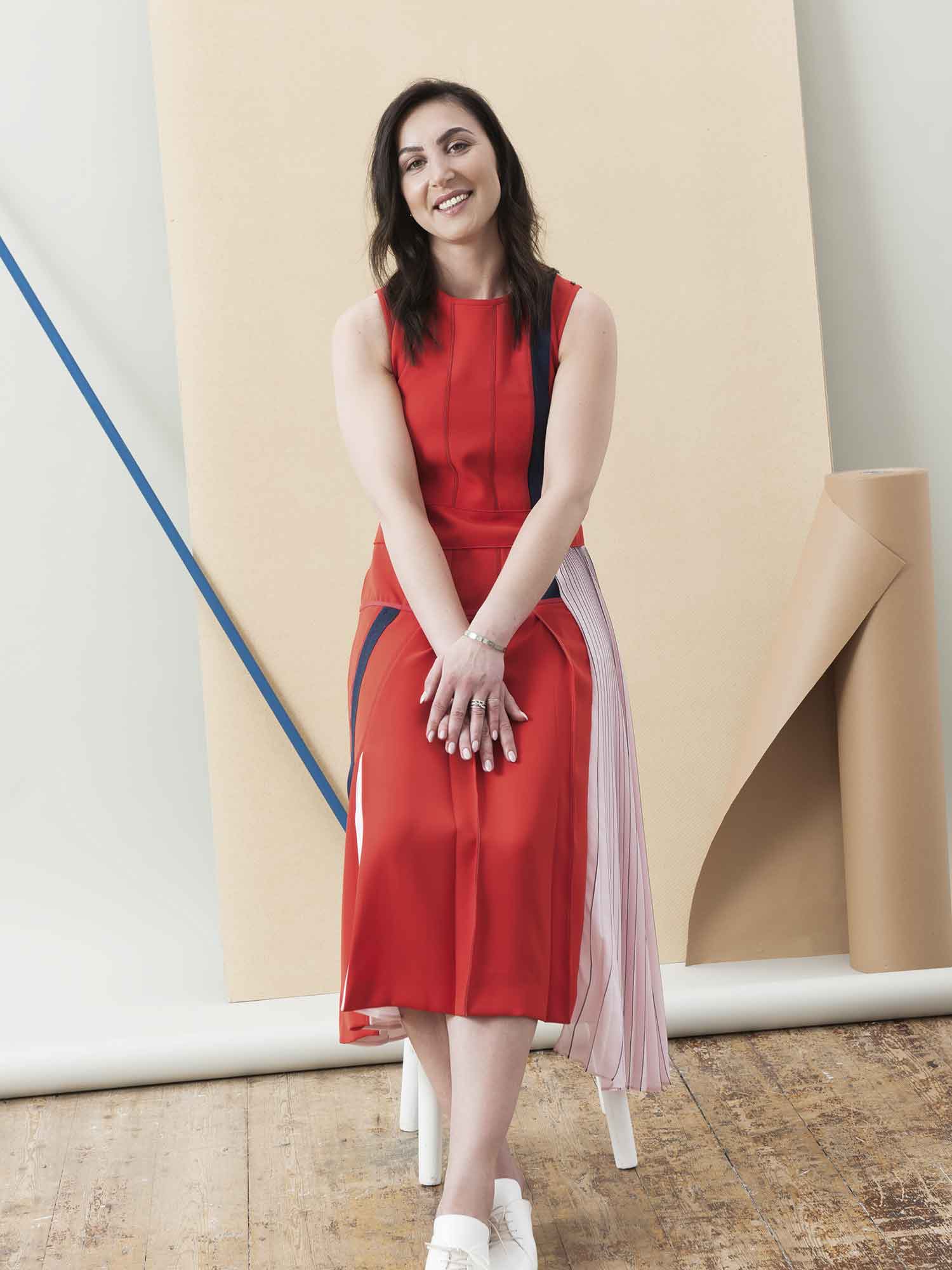
Cristina Gavrilovic, 33, is head of European programmes at Justice and Care, which fights human trafficking and modern slavery in the UK and Europe. She was formerly anti-slavery partnership coordinator for Essex Police and Kent Police Serious Crime Directorate. Gavrilovic won Outstanding Contribution To The Fight Against Slavery at the national Marsh Awards. Photo by David Newby
I supported my household from a young age. I lost my mum at 12 and my dad became dependent on alcohol. My formative years were in Romania, where there was very little infrastructure in terms of social care. A lot of kids ran away from home – you’d overhear them talking about having been sexually abused.
I based my career on what was missing. I started a law degree in my mid-twenties and wanted to focus on a human rights issue that wasn’t under the spotlight. I was gripped by human trafficking – I couldn’t get my head around humans as currency, women given price tags.
When I was working at the Serious Crime Directorate, we rescued 600 victims of 23 nationalities in under two years. The average trafficked child in the UK is aged 14. Sexual exploitation is most common, followed by forced labour on construction sites, hand car washes and agriculture. Only 16 per cent of car washes in the UK are ‘clean’ – some are involved in slavery, money laundering or tax evasion.
In my previous role as a 999 operator, a woman called asking for help, but didn’t speak English. I spoke to her in Romanian as I was the only one who could, and managed to arrange a safe place to get her and two men away from her traffickers. The woman had been promised a job as a model in the UK three months earlier, but was taken to a caravan and forced into sex work: 20 men a day, seven days a week. All she kept saying was, ‘I want to go back to my mum,’ and we made that happen.
The flexible-working pioneer: Anna Whitehouse
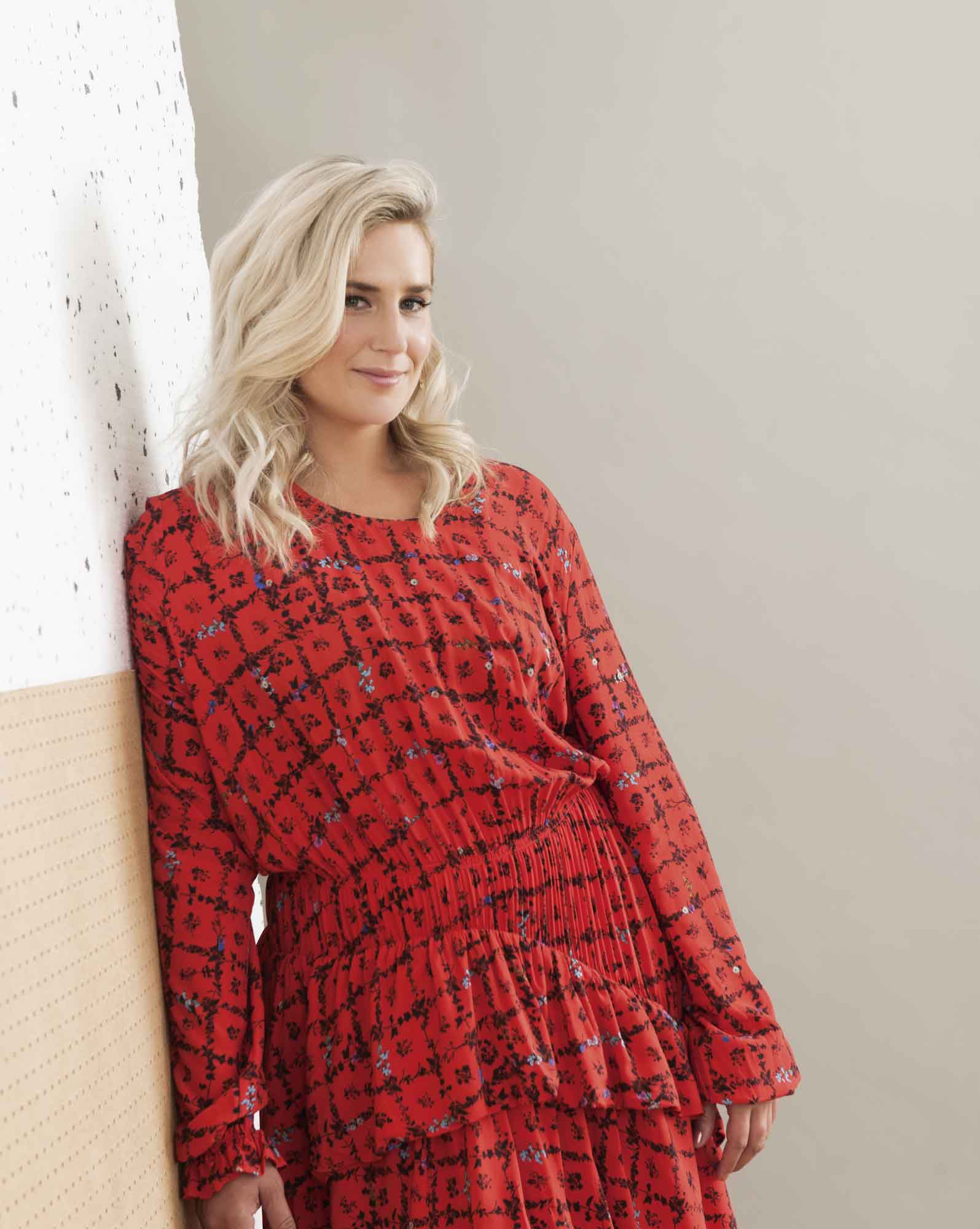
Anna Whitehouse, 37, is the founder of successful platform Mother Pukka, a site ‘for people who happen to be parents’. Once a senior creative copywriter for L’Oréal, she is now also a lobbyist and radio presenter on Heart. Whitehouse fights for flexible working through her Flex Appeal campaign, which she has taken to the Welsh Assembly and Downing Street. Photo by David Newby
I was breastfeeding my daughter at 3am when I got the inspiration for Mother Pukka. We lived in Amsterdam and all the Instagram feeds from the Californian girls came through at that hour, and they seemed very free and easy. Feeling rubbish and alone. I thought, ‘I can’t be the only one looking for some humour to cut through the slog of being a parent.’
It’s estimated that 54,000 women a year could be discriminated against in the workforce for having a baby. This is according to the Equality and Human Rights Commission. Whether through redundancy or inflexibility, the real total is likely to be higher because of gagging orders. Flex Appeal pushes for flexible working for all. I started it when my own request was denied. The excuse I was given was it would ‘open the floodgates’.
My proudest moment was giving evidence of maternity discrimination to the Welsh Assembly. After a year of lobbying and emails, they got in touch. The report that followed called flexible working ‘the primary way’ to tackle maternity discrimination in business. To see it in black and white was a big moment.
I’m doing this for my girls. It’s easy to get drawn into negativity when you’re doing something slightly political, but you can’t forget those in front of you. There’s no point fighting for a better life for your children and not seeing them in the process: my girls have to know me as a mother first and foremost.
The sports game changer: Eniola Aluko
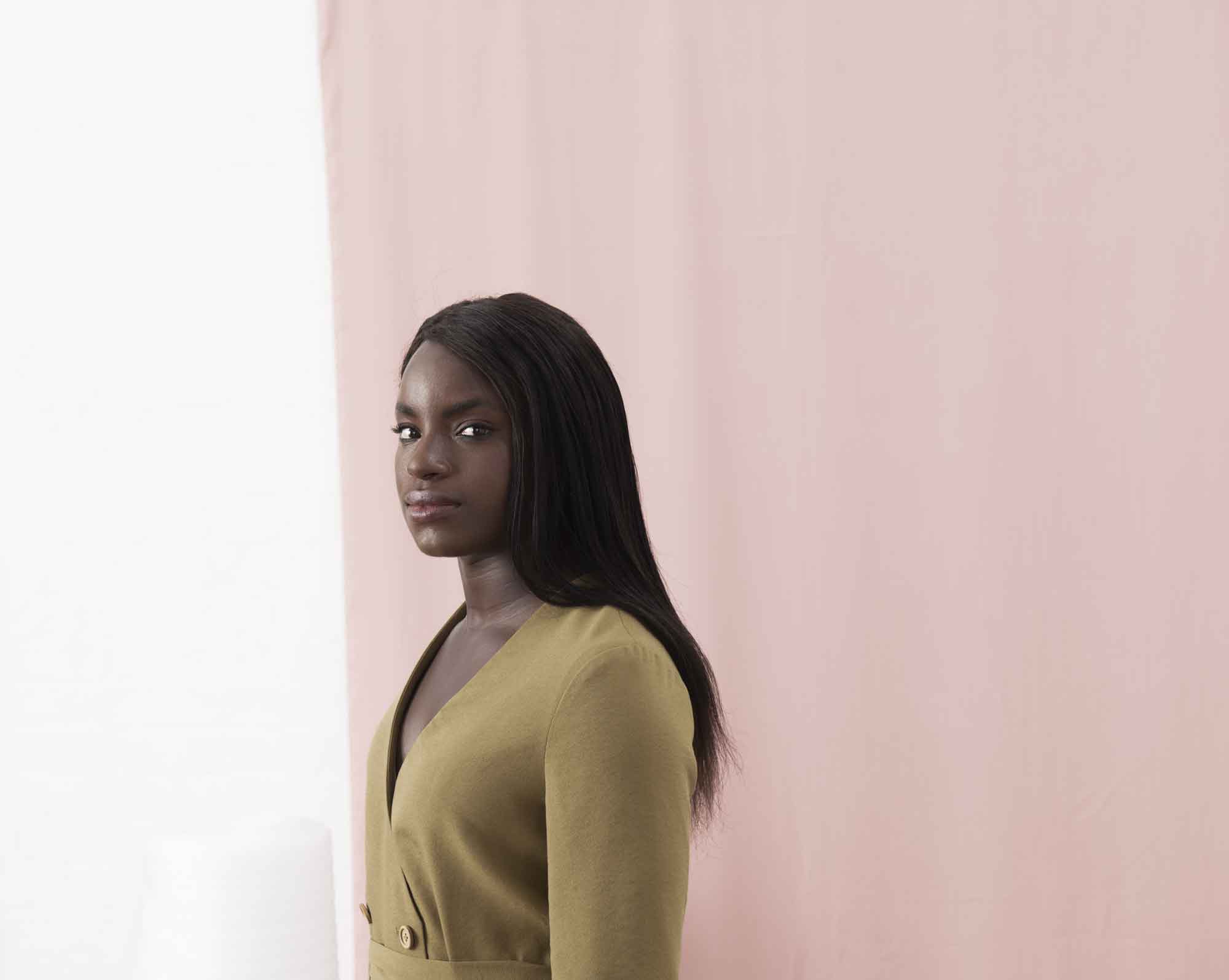
Eniola Aluko, 31, is a professional footballer for Juventus, a pundit and solicitor. She was the first female studio pundit on Match Of The Day, and one of the first two female footballer World Cup pundits. Aluko won five major titles at Chelsea, and spoke out about racism in football, leading the FA to apologise in 2017 for racially discriminatory remarks by her former England boss. Photo by David Newby
The gender pay discrepancy will get better in football, but it will never be the same. The only way it’s going to change is if broadcasters start paying millions for the rights to women’s football and fans are willing to pay hundreds to see the games.
Integrity has longevity. I’m inspired by people like Oprah Winfrey and Nelson Mandela, who made sacrifices to change the world. When you face adversity, you have to decide whether you want to please everybody or stand on your own.
The 2012 Olympics changed my career. I was back from playing professionally in America, thinking about a change, but in the Olympics my passion for football returned. I watched the opening ceremony with my team in our Adidas by Stella McCartney tracksuits thinking, ‘This is just amazing.’
Some stumbling blocks are stepping stones to higher places. In 2014, at Chelsea, we were desperately close to winning the League for the first time, but lost on the last day. I felt like the world was ending – all my teammates were in tears. The next season, we won the FA Cup and the League.
It doesn’t get much better than being a World Cup pundit. Being there wasn’t an accident, it was five years’ work for me. My underlying goal is to leave a legacy, so people remember me as an inspiration for younger women.
The cyber expert: Sarah Taylor
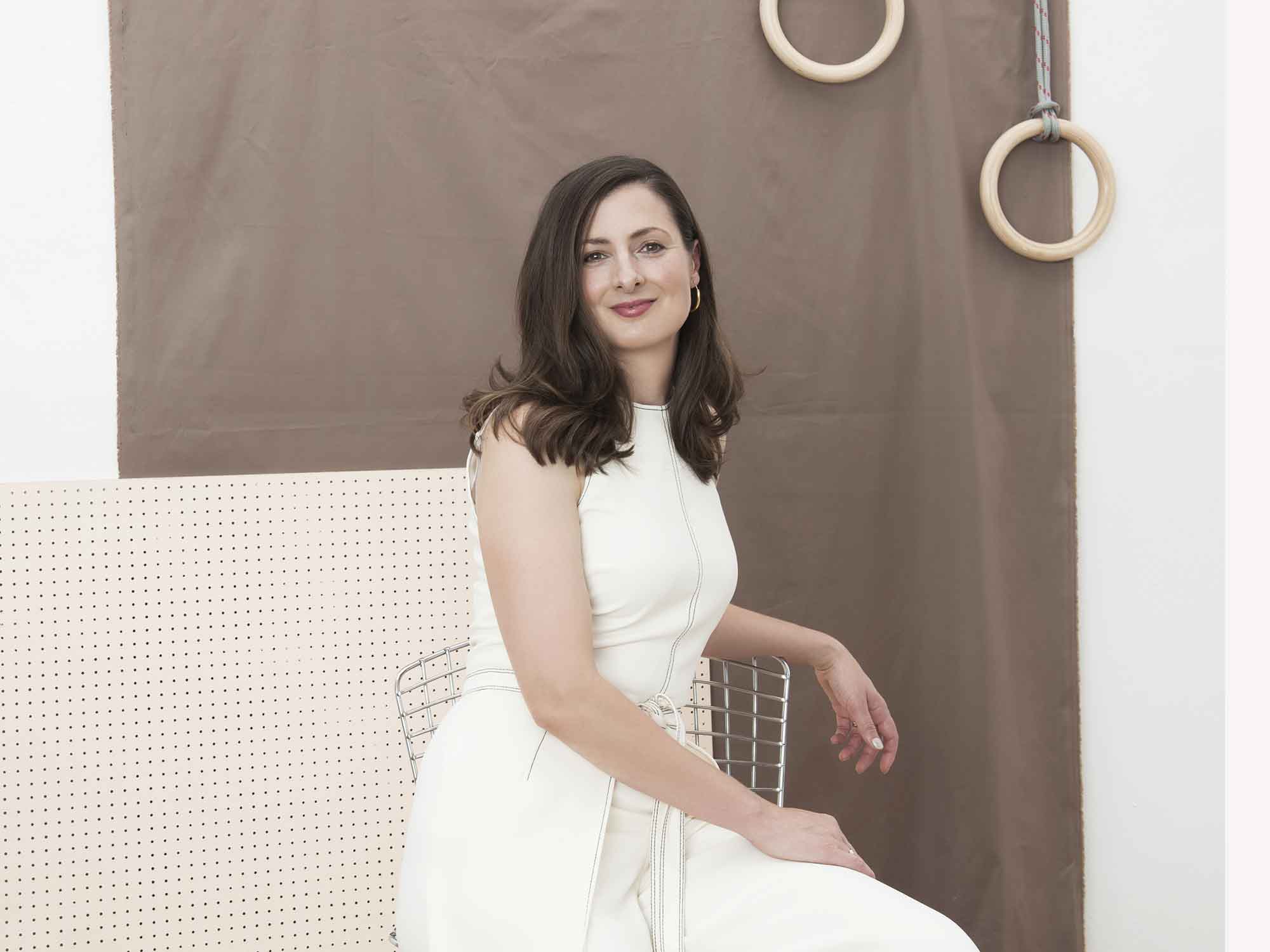
Sarah Taylor, 42, is director of Cyber and National Security Capabilities at the Foreign and Commonwealth Office. Taylor uses diplomacy to protect the UK against serious cyber attacks and shapes international rules that keep the internet open and secure – something on which the UK’s economic prosperity and social well-being rely. She also mentors secondary-school pupils in London. Photo by David Newby
Working in national security, it could be easy to become depressed about the threats that we face. But I’m hugely proud of the work we do and the values that underpin how and why we do it: protecting people, upholding international law and defending human rights. My proudest achievement to date has been signing an international treaty on behalf of my country. I led a UN delegation in South Korea, where we had to discuss 180 UN resolutions simultaneously, and we eventually managed to agree all of them.
I owe a great deal to Mr Marker, my school history teacher. When I failed my history A-level and lost my university place, he fought for me, explaining I was dyslexic. My dyslexia means I do a lot more communicating with my team face-to-face, as I’m quicker and more effective that way.
Be kind to yourself. I have a book in my locker where I put good feedback – thank you cards, things like that. When imposter complex strikes, I flick through and think, ‘No, you can do this!’ Having children compels me to unwind: when I come home and my daughters want to play Beauty And The Beast, I have to be the Beast. It’s quite difficult to worry about cyber security when you’re marching around the garden roaring.
The high-profile WannaCry NHS ransomware attack was not a quiet day at the office. I worked with international colleagues to build a coalition of responses. It was groundbreaking – the first time a group of countries has come out with a parallel statement to condemn a cyber attack.
The virtual-reality innovator: Catherine Allen
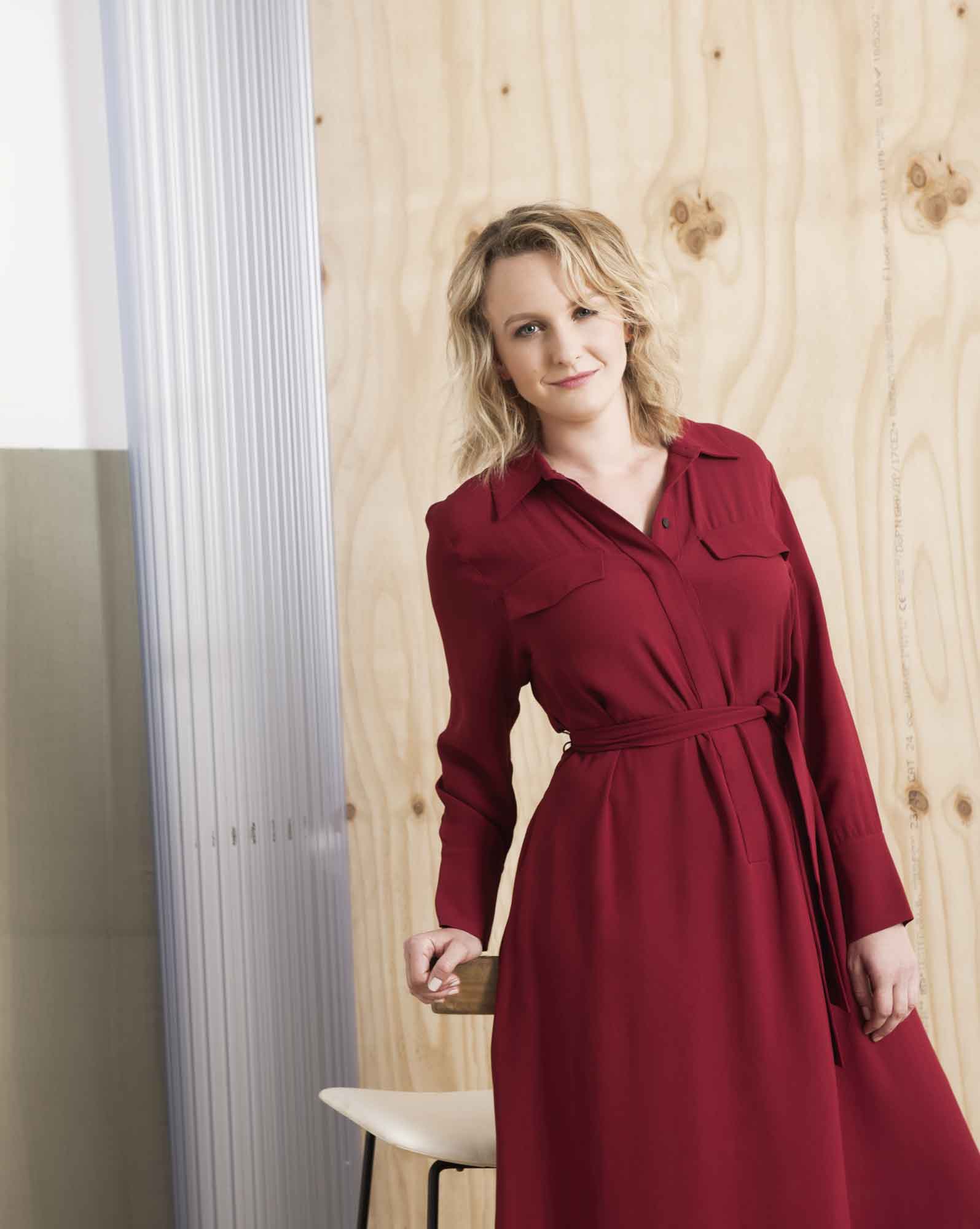
Catherine Allen, 29, is CEO and founder of Limina Immersive, which is on a mission to bring virtual-reality (VR) technology to a wider audience. As well as being an advocate for technology based on the needs of women in a traditionally male industry, Allen curates VR for some of the UK’s leading arts venues and has won a BAFTA for her work creating a Disney app. In October 2017, she gave her first TEDx Talk, about VR’s future, creative possibilities and ethical challenges. Photo by David Newby
It’s vital we get VR to female audiences. So much VR content is made by men, for men, and a huge proportion of VR content downloads in general is porn. At Limina Immersive, we champion the work of women, people of colour and work that has a different point of view – our angle is to promote fresh and original perspectives. It’s crucial these are a part of our future technology.
My grandfather taught me to code. I used to create ‘choose your own adventure’ games, which I suppose is a sort of virtual reality! At school, I was really into making websites: the first one I created was to sell outfits that my friend and I had designed on Microsoft Paint for characters from The Sims. I think it’s considered cool now to be very good at using apps or web platforms, for example, but there’s still work to be done. The stereotypes around computing being attached to men and boys frustrate me.
VR is projected to be as significant as cinema or smartphones. I want to see the fact that our society is, on paper at least, more equal than ever reflected into the birth of this new art form. We need to ensure that it isn’t trivialised as a boys’ toy or a gimmick. I often shy away from predictions about VR because I don’t like that deterministic view on the future: I want people to feel they can own it.
The fashion original: Hannah Weiland
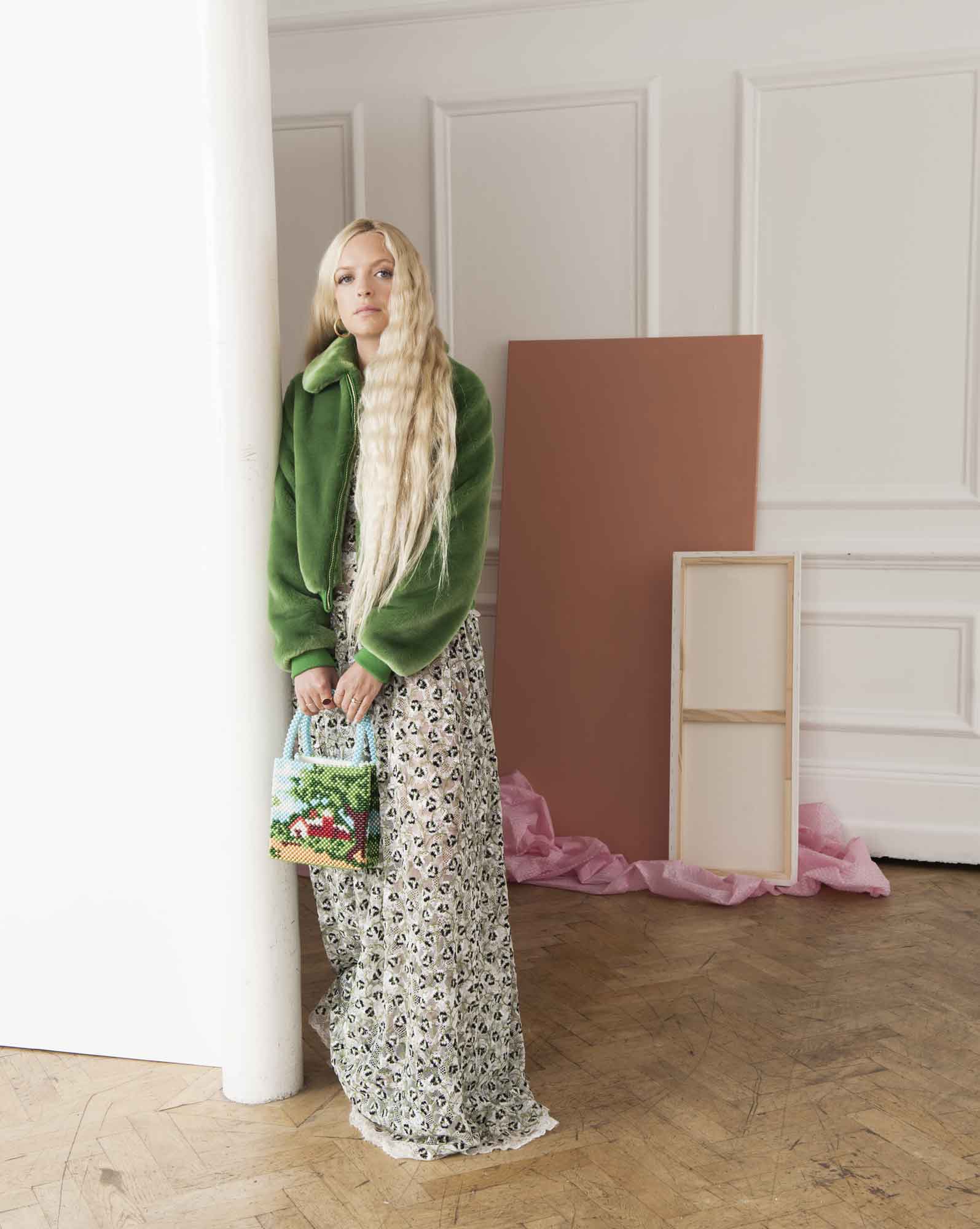
Hannah Weiland, 28, founded faux-fur brand Shrimps in 2013. Fans include Alexa Chung, Solange and Dame Natalie Massenet. Originally focusing on outerwear, Shrimps’ collections now include accessories and ready-to-wear. Photo by David Newby
When I was young, I was animal obsessed. I had rabbits, guinea pigs and hamsters, and wore a T-shirt with a dog on every day. I came across a factory making faux fur while doing research at fashion school – it was a light-bulb moment: so luxurious and soft. It’s animal-friendly: I would never harm an animal to make something for people to wear.
I didn’t set out to start a brand, but I was too young to contemplate failure. I started Shrimps when I was 23, young and naive. Less knowledge means less scared, which helps as this industry’s so competitive. I designed one coat and it came from that.
Net-a-Porter founder Dame Natalie Massenet chased Laura Bailey down the street to find out where her coat was from. Laura is a friend, so I gave her a sample to wear to London Fashion Week. She was messaging me, saying, ‘I’ve never had a coat so well received on its first outing!’ I was ill in bed and being sent pictures of Alexa Chung wearing our coat! I couldn’t believe it and neither could my parents – my dad thought we’d end up with a load of coats in our attic.
I’m inspired by art – I love Paula Rego, Grayson Perry and Yayoi Kusama. Given my degree background, I’ve got a lot of references and some more obscure artists, which I never would have known had I not studied history of art. This year, I went on my honeymoon to the Amalfi Coast, and it was amazing. I was so inspired by the tiles and Pompeii.
-
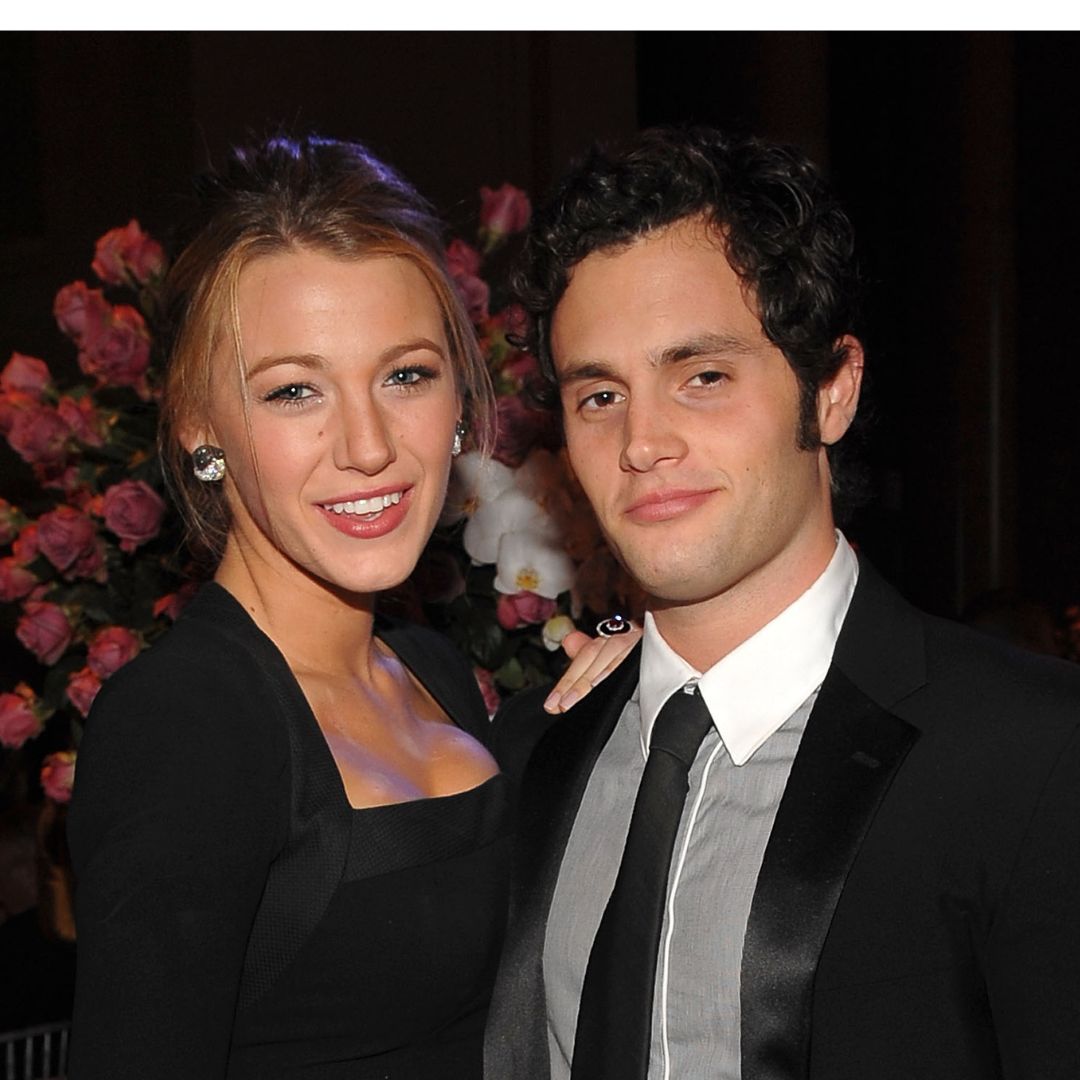 Penn Badgley credits ex girlfriend Blake Lively for "saving" him from the pitfalls of fame
Penn Badgley credits ex girlfriend Blake Lively for "saving" him from the pitfalls of fameBy Jenny Proudfoot
-
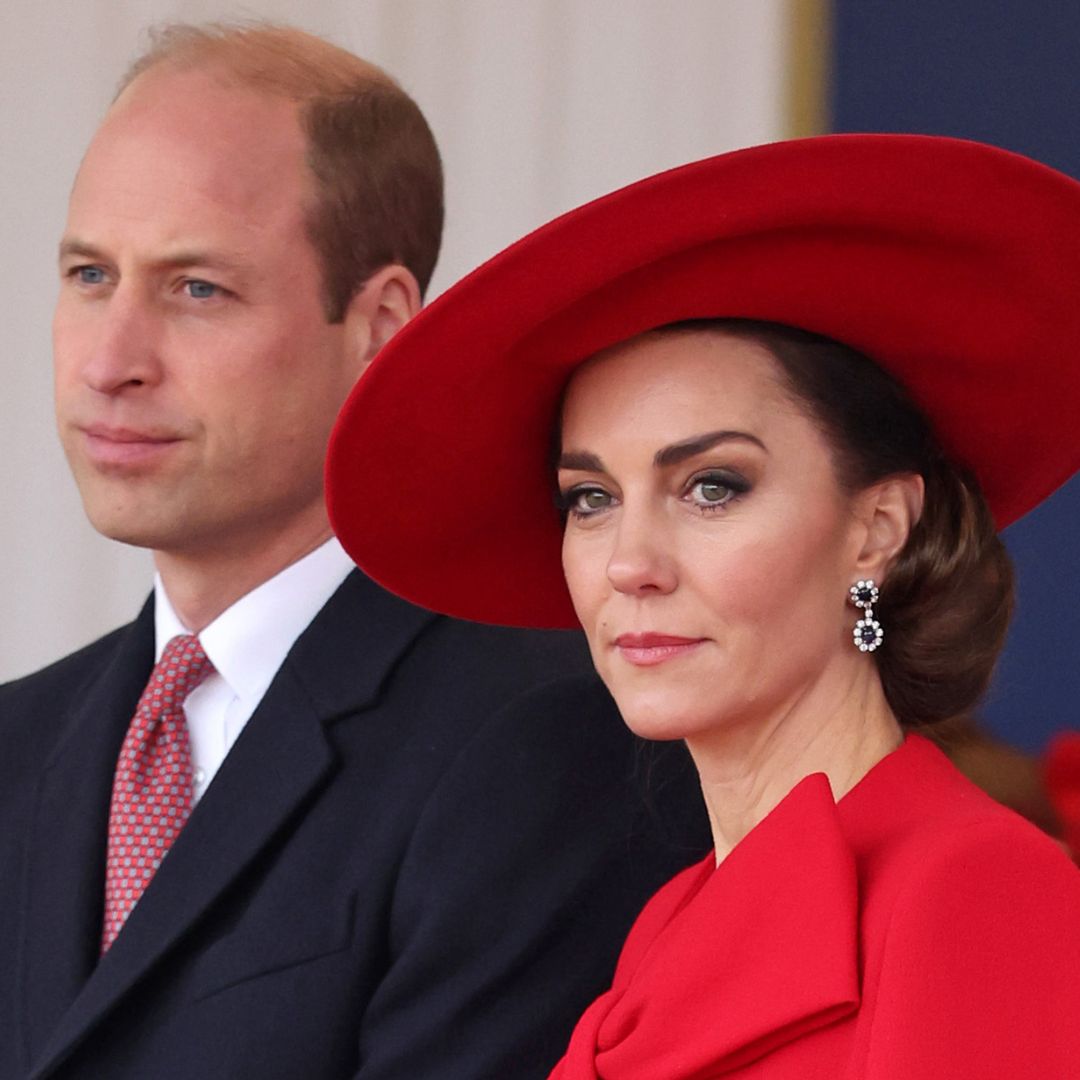 Prince William and Princess Kate's Easter absence has reportedly "raised eyebrows at the palace"
Prince William and Princess Kate's Easter absence has reportedly "raised eyebrows at the palace"By Jenny Proudfoot
-
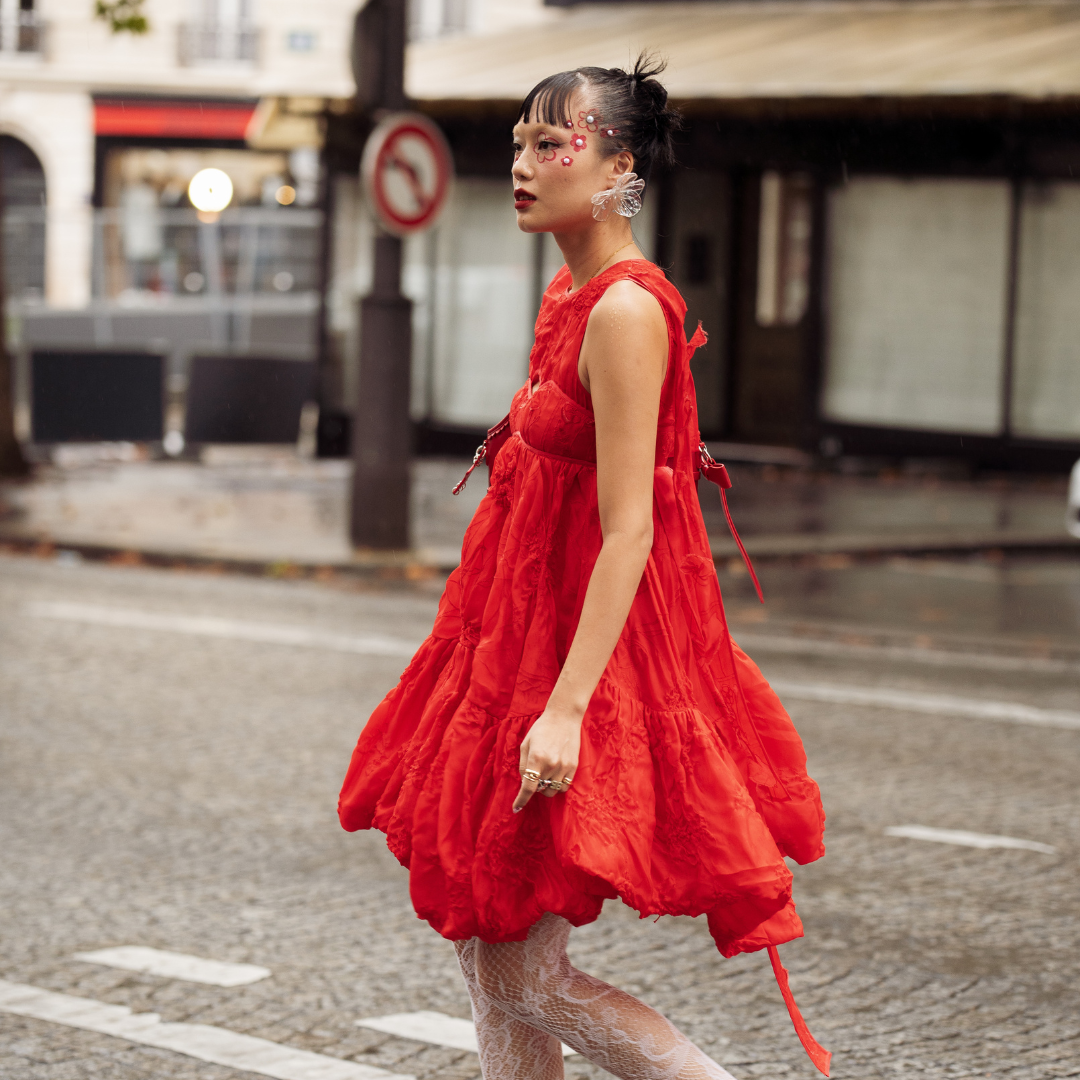 This divisive Nineties trend just got a high-fashion makeover
This divisive Nineties trend just got a high-fashion makeoverAll the cool girls are wearing babydoll dresses again
By Sofia Piza
-
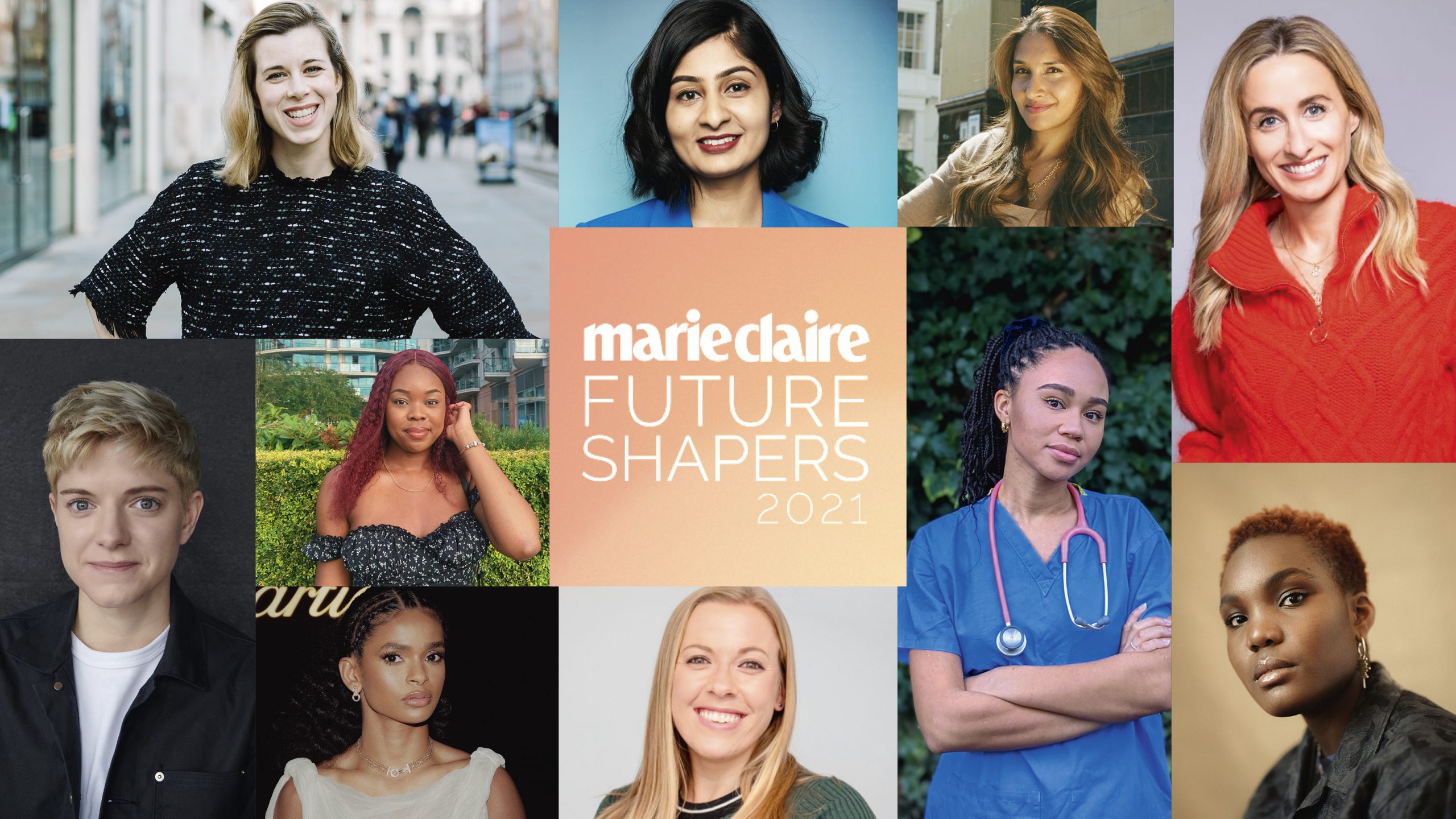 Marie Claire Future Shapers: Meet the trailblazers driving change now, next year and beyond
Marie Claire Future Shapers: Meet the trailblazers driving change now, next year and beyondWe honour the people working to shape our lives for the better. Allow us to introduce you to the Marie Claire 2021 Future Shapers...
By Catriona Harvey-Jenner
-
 How to be a force for good, according to Marie Claire digital cover stars
How to be a force for good, according to Marie Claire digital cover starsBy Kate McCusker
-
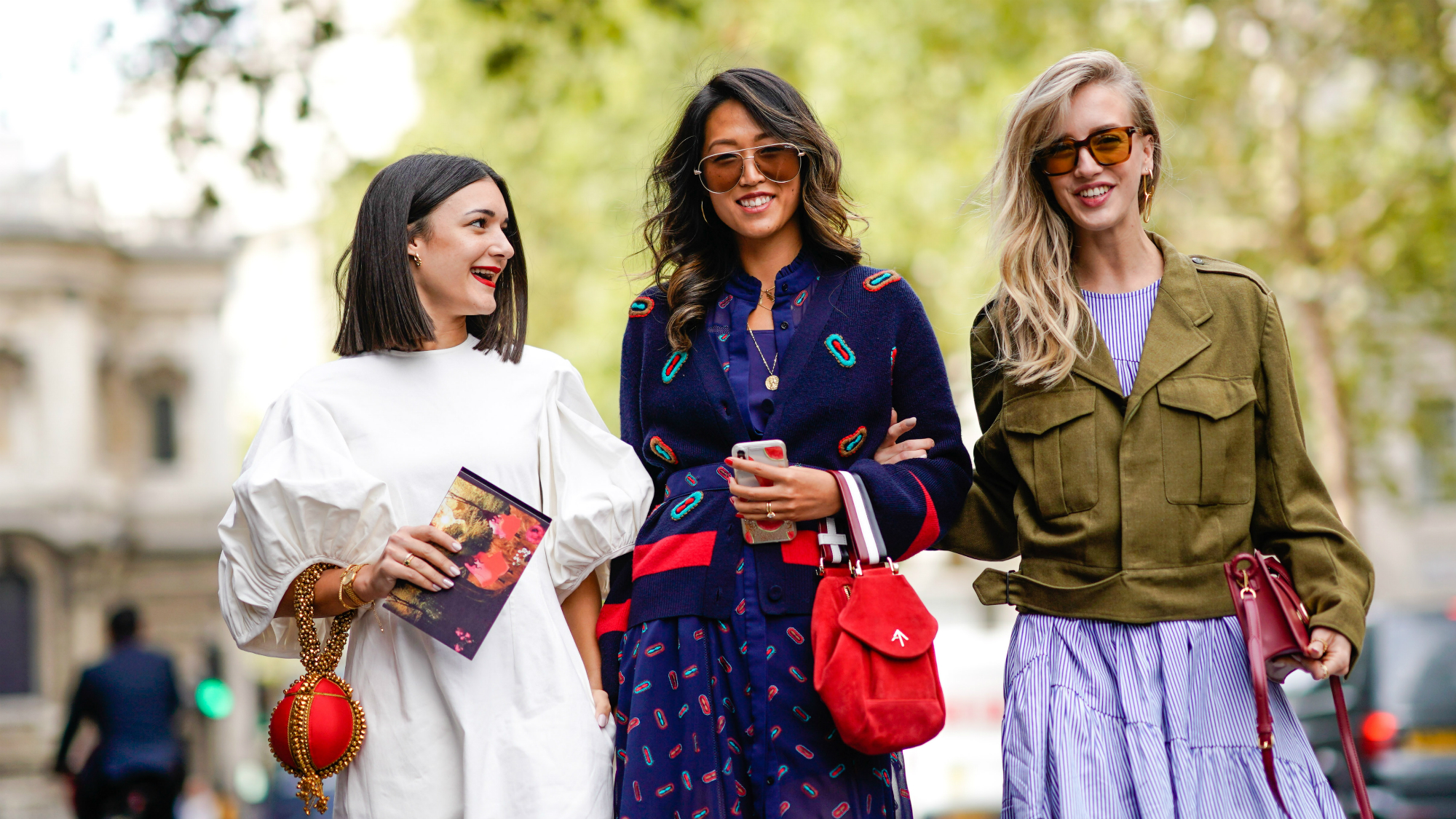 The MC Future Shapers 2020 Awards are here and we're shining a light on the resilience of Gen Z and Millennial women
The MC Future Shapers 2020 Awards are here and we're shining a light on the resilience of Gen Z and Millennial womenBy Jenny Proudfoot
-
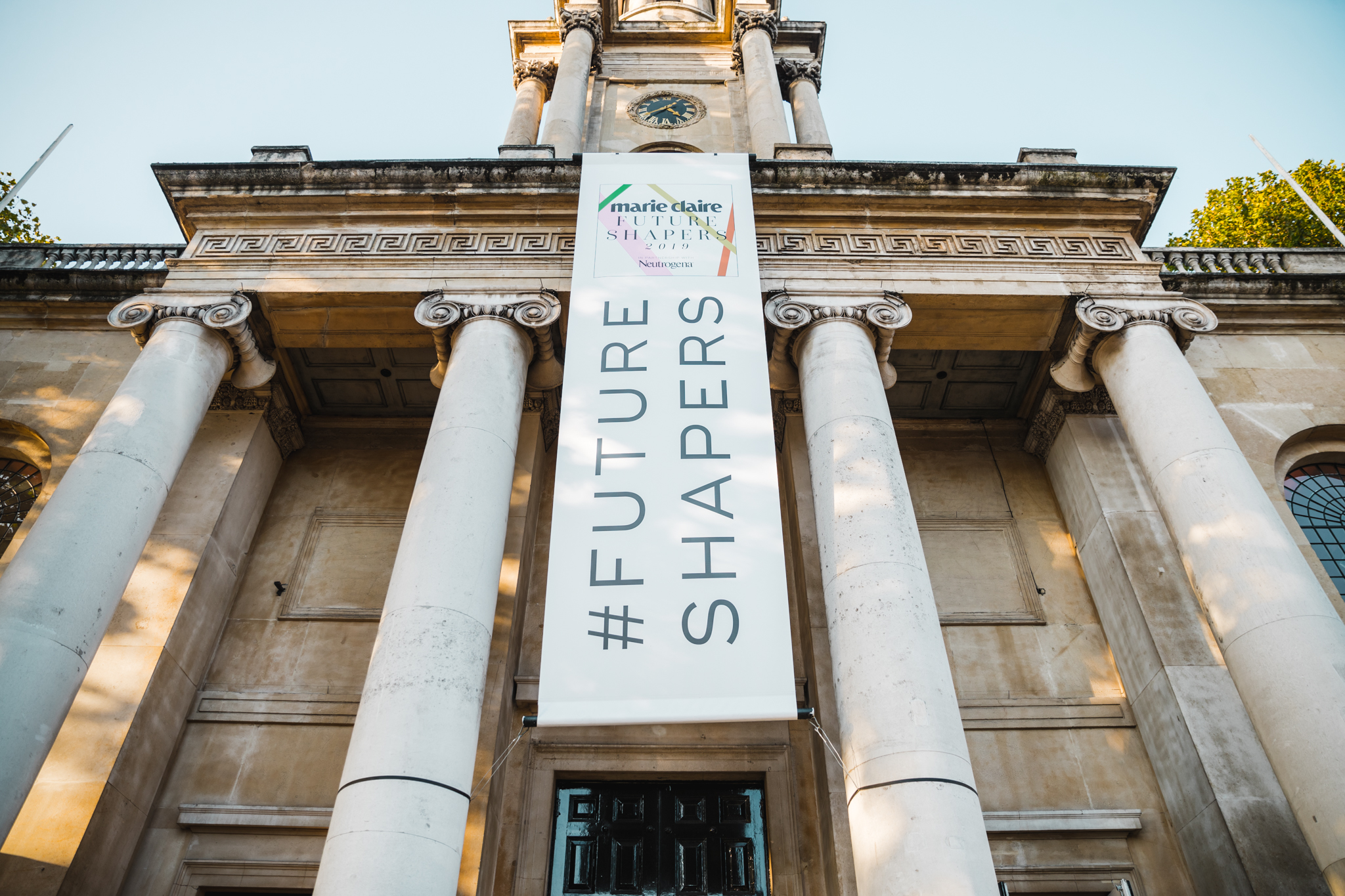 ICYMI: Here’s what happened at Marie Claire’s Future Shapers Awards 2019
ICYMI: Here’s what happened at Marie Claire’s Future Shapers Awards 2019We celebrated ten incredible women at the annual Marie Claire Future Shapers awards. Here's all the details from inside the party...
By Jenny Proudfoot
-
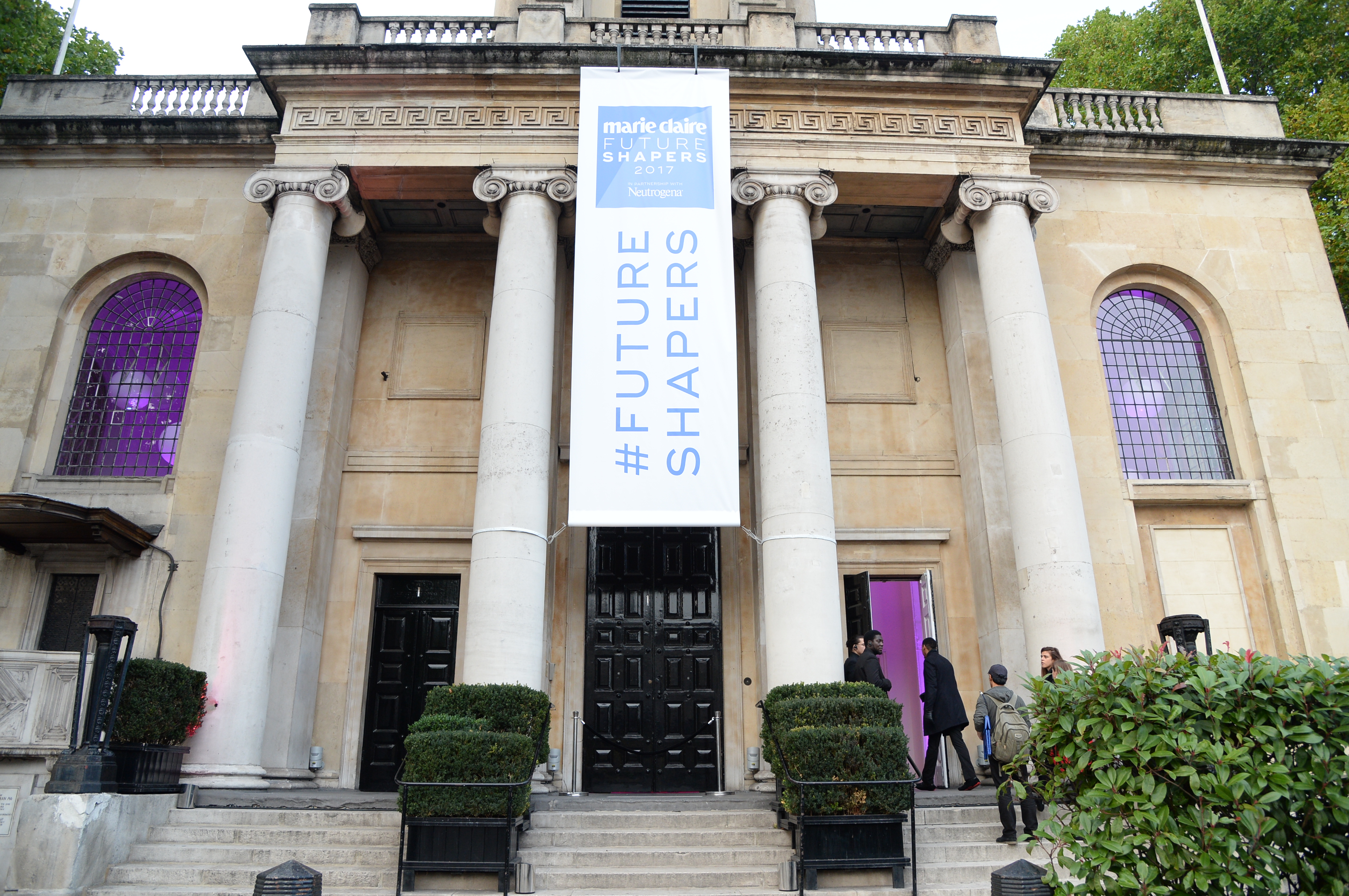 Who attended the Marie Claire 2017 Future Shapers awards?
Who attended the Marie Claire 2017 Future Shapers awards?From CEOs and news readers to Game of Thrones actresses and activists, here's who was in attendance...
By Jenny Proudfoot
-
 ICYMI: Here’s what happened at Marie Claire’s 2017 Future Shapers Awards
ICYMI: Here’s what happened at Marie Claire’s 2017 Future Shapers AwardsWe celebrated eleven incredible women on Tuesday at the annual Marie Claire Future Shapers awards. Here's all the details from inside the party...
By Jenny Proudfoot
-
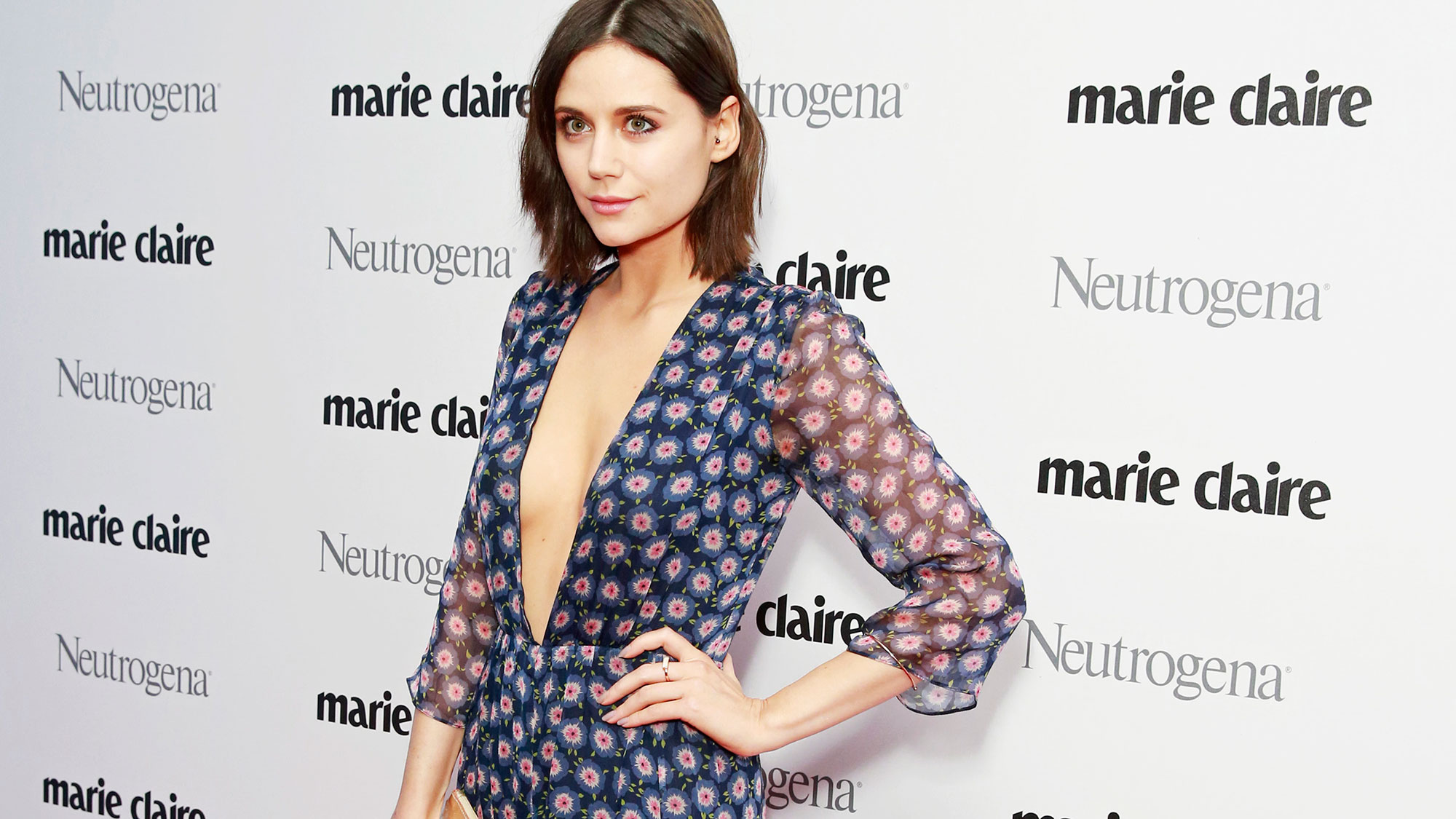 Marie Claire Future Shapers 2016: See all the party pics
Marie Claire Future Shapers 2016: See all the party picsMarie Claire and friends were out in force on Thursday night to celebrate the eleven brilliant winners of the Marie Claire Future Shapers Awards, in partnership with Neutrogena.
By Sunil Makan
-
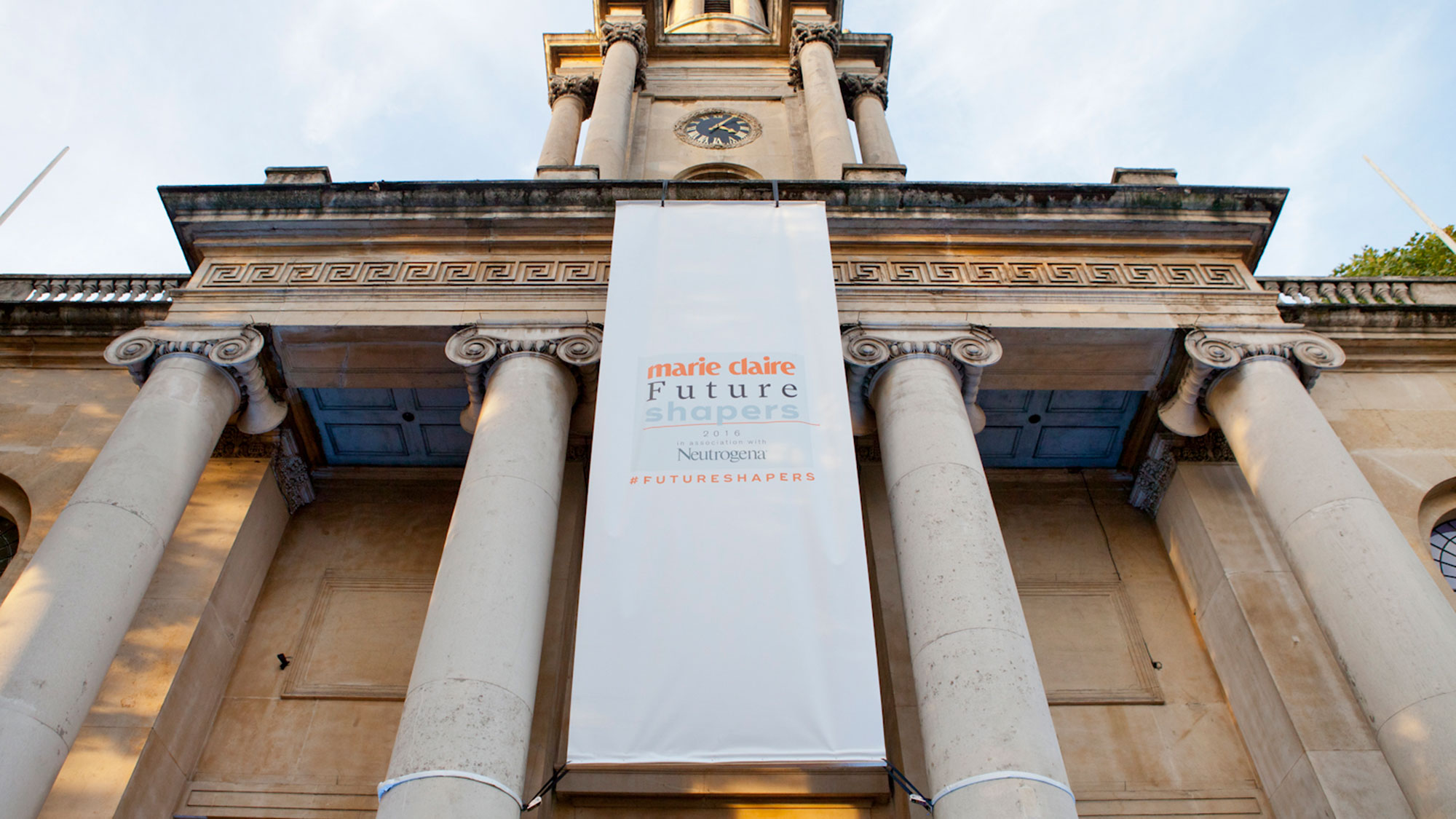 ICYMI: Here's what happened at Marie Claire's Future Shapers Awards
ICYMI: Here's what happened at Marie Claire's Future Shapers AwardsWe celebrated eleven incredible women on Thursday night at the annual Marie Claire Future Shapers awards. Here's all the details from inside the party.
By Lucy Pavia